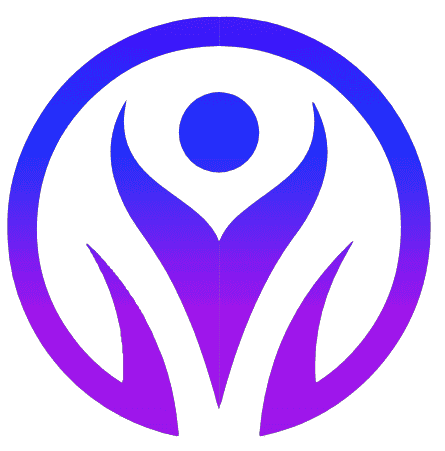


Category: General
Oct 9, 2024
Navigating the Consulting Maze: Best Practices for Hiring the Right Expert
Hiring a consultant can be a game-changer, bringing fresh perspectives and specialized expertise to your business. However, navigating the consulting landscape can be daunting. This guide provides essential steps to ensure a successful engagement:
1. Define Your Needs and Objectives:
Before searching for consultants, thoroughly analyze your organization's challenges and goals. Define the specific problem, desired outcomes, essential skills, budget, and timeline for the project. Clarity in your objectives attracts consultants with relevant expertise and tailors your selection process.
2. Research and Identify Potential Consultants:
Explore the consulting market using various resources:
· Online Platforms: LinkedIn, Clutch, and Upwork offer extensive consultant directories.
· Industry Associations: Professional organizations often have member directories or referral services.
· Networking: Seek recommendations from colleagues, peers, and mentors.
· Consultancy Firms: Consider established firms for larger or complex projects.
3. Evaluate Consultant Profiles and Credentials:
Thoroughly review shortlisted consultants' profiles, focusing on:
· Relevant Experience: Look for a proven track record in your industry or addressing similar challenges.
· Expertise and Skillset: Ensure they possess the specific skills and knowledge required.
· Education and Certifications: Relevant credentials show commitment to their field.
· Client Testimonials and Case Studies: Seek evidence of past successes.
4. Conduct Effective Interviews:
Interviews are crucial for assessing suitability beyond the written profile. Prepare insightful questions that delve into their experience, approach, and communication style:
· Focus on past projects: Ask for specific examples of how they addressed challenges and delivered results.
· Assess problem-solving skills: Present hypothetical scenarios related to your project.
· Evaluate communication and interpersonal skills: Strong communication is essential for a successful engagement.
· Discuss their proposed approach and method: Ensure alignment with your expectations.
5. Check References and Conduct Due Diligence:
Before making a final decision, check references and verify information:
· Contact previous clients: Gather insights into their experience working with the consultant.
· Verify resume and profile accuracy: Ensure the information provided is truthful.
· Conduct background checks if necessary: Especially for sensitive projects.
6. Clearly Define the Scope of Work and Deliverables:
Establish a detailed contract outlining the scope of work, deliverables, timelines, payment terms, and other crucial aspects:
· Define specific tasks and responsibilities for both parties.
· Establish measurable milestones and deliverables with clear deadlines.
· Outline communication channels and reporting frequency.
· Include provisions for intellectual property rights and confidentiality.
7. Foster Open Communication and Collaboration:
Maintain open and consistent communication throughout the project:
· Establish regular check-in meetings: Discuss progress, address challenges, and provide feedback.
· Create a collaborative environment: Encourage open sharing of ideas and insights.
· Provide necessary resources and access to information.
· Be responsive to the consultant's questions and requests for support.
8. Evaluate Performance and Measure Results:
Regularly evaluate the consultant's performance against milestones and deliverables:
· Solicit feedback from stakeholders: Gather insights from those who interacted with the consultant.
· Document lessons learned: Capture valuable insights for future engagements.
· Conduct a formal performance review: Provide constructive feedback, highlighting strengths and areas for improvement.
· Assess the overall impact: Evaluate the achievement of project objectives and the consultant's influence.
9. Manage Expectations and Address Issues Proactively:
Manage expectations from both sides and address issues promptly and professionally:
· Establish clear communication channels for concerns and conflicts.
· Focus on finding mutually beneficial solutions.
· Be prepared to adjust the scope of work or timeline if necessary.
10. Plan for Knowledge Transfer and Transition:
Ensure a smooth transition of knowledge and responsibilities back to your internal team:
· Develop a plan for documenting the consultant's work.
· Provide training or workshops to transfer knowledge and skills.
· Consider establishing ongoing support or mentorship arrangements.
Hiring a consultant can be a strategic investment that drives significant value. By following these best practices, you can confidently navigate the consulting landscape, select the right expert, and maximize the chances of a successful and fruitful engagement. Remember that clear communication, thorough due diligence, and a collaborative approach are key to unlocking the full potential of your consulting partnership and achieving your desired outcomes.
Hiring a consultant can be a game-changer, bringing fresh perspectives and specialized expertise to your business. However, navigating the consulting landscape can be daunting. This guide provides essential steps to ensure a successful engagement:
1. Define Your Needs and Objectives:
Before searching for consultants, thoroughly analyze your organization's challenges and goals. Define the specific problem, desired outcomes, essential skills, budget, and timeline for the project. Clarity in your objectives attracts consultants with relevant expertise and tailors your selection process.
2. Research and Identify Potential Consultants:
Explore the consulting market using various resources:
· Online Platforms: LinkedIn, Clutch, and Upwork offer extensive consultant directories.
· Industry Associations: Professional organizations often have member directories or referral services.
· Networking: Seek recommendations from colleagues, peers, and mentors.
· Consultancy Firms: Consider established firms for larger or complex projects.
3. Evaluate Consultant Profiles and Credentials:
Thoroughly review shortlisted consultants' profiles, focusing on:
· Relevant Experience: Look for a proven track record in your industry or addressing similar challenges.
· Expertise and Skillset: Ensure they possess the specific skills and knowledge required.
· Education and Certifications: Relevant credentials show commitment to their field.
· Client Testimonials and Case Studies: Seek evidence of past successes.
4. Conduct Effective Interviews:
Interviews are crucial for assessing suitability beyond the written profile. Prepare insightful questions that delve into their experience, approach, and communication style:
· Focus on past projects: Ask for specific examples of how they addressed challenges and delivered results.
· Assess problem-solving skills: Present hypothetical scenarios related to your project.
· Evaluate communication and interpersonal skills: Strong communication is essential for a successful engagement.
· Discuss their proposed approach and method: Ensure alignment with your expectations.
5. Check References and Conduct Due Diligence:
Before making a final decision, check references and verify information:
· Contact previous clients: Gather insights into their experience working with the consultant.
· Verify resume and profile accuracy: Ensure the information provided is truthful.
· Conduct background checks if necessary: Especially for sensitive projects.
6. Clearly Define the Scope of Work and Deliverables:
Establish a detailed contract outlining the scope of work, deliverables, timelines, payment terms, and other crucial aspects:
· Define specific tasks and responsibilities for both parties.
· Establish measurable milestones and deliverables with clear deadlines.
· Outline communication channels and reporting frequency.
· Include provisions for intellectual property rights and confidentiality.
7. Foster Open Communication and Collaboration:
Maintain open and consistent communication throughout the project:
· Establish regular check-in meetings: Discuss progress, address challenges, and provide feedback.
· Create a collaborative environment: Encourage open sharing of ideas and insights.
· Provide necessary resources and access to information.
· Be responsive to the consultant's questions and requests for support.
8. Evaluate Performance and Measure Results:
Regularly evaluate the consultant's performance against milestones and deliverables:
· Solicit feedback from stakeholders: Gather insights from those who interacted with the consultant.
· Document lessons learned: Capture valuable insights for future engagements.
· Conduct a formal performance review: Provide constructive feedback, highlighting strengths and areas for improvement.
· Assess the overall impact: Evaluate the achievement of project objectives and the consultant's influence.
9. Manage Expectations and Address Issues Proactively:
Manage expectations from both sides and address issues promptly and professionally:
· Establish clear communication channels for concerns and conflicts.
· Focus on finding mutually beneficial solutions.
· Be prepared to adjust the scope of work or timeline if necessary.
10. Plan for Knowledge Transfer and Transition:
Ensure a smooth transition of knowledge and responsibilities back to your internal team:
· Develop a plan for documenting the consultant's work.
· Provide training or workshops to transfer knowledge and skills.
· Consider establishing ongoing support or mentorship arrangements.
Hiring a consultant can be a strategic investment that drives significant value. By following these best practices, you can confidently navigate the consulting landscape, select the right expert, and maximize the chances of a successful and fruitful engagement. Remember that clear communication, thorough due diligence, and a collaborative approach are key to unlocking the full potential of your consulting partnership and achieving your desired outcomes.
Hiring a consultant can be a game-changer, bringing fresh perspectives and specialized expertise to your business. However, navigating the consulting landscape can be daunting. This guide provides essential steps to ensure a successful engagement:
1. Define Your Needs and Objectives:
Before searching for consultants, thoroughly analyze your organization's challenges and goals. Define the specific problem, desired outcomes, essential skills, budget, and timeline for the project. Clarity in your objectives attracts consultants with relevant expertise and tailors your selection process.
2. Research and Identify Potential Consultants:
Explore the consulting market using various resources:
· Online Platforms: LinkedIn, Clutch, and Upwork offer extensive consultant directories.
· Industry Associations: Professional organizations often have member directories or referral services.
· Networking: Seek recommendations from colleagues, peers, and mentors.
· Consultancy Firms: Consider established firms for larger or complex projects.
3. Evaluate Consultant Profiles and Credentials:
Thoroughly review shortlisted consultants' profiles, focusing on:
· Relevant Experience: Look for a proven track record in your industry or addressing similar challenges.
· Expertise and Skillset: Ensure they possess the specific skills and knowledge required.
· Education and Certifications: Relevant credentials show commitment to their field.
· Client Testimonials and Case Studies: Seek evidence of past successes.
4. Conduct Effective Interviews:
Interviews are crucial for assessing suitability beyond the written profile. Prepare insightful questions that delve into their experience, approach, and communication style:
· Focus on past projects: Ask for specific examples of how they addressed challenges and delivered results.
· Assess problem-solving skills: Present hypothetical scenarios related to your project.
· Evaluate communication and interpersonal skills: Strong communication is essential for a successful engagement.
· Discuss their proposed approach and method: Ensure alignment with your expectations.
5. Check References and Conduct Due Diligence:
Before making a final decision, check references and verify information:
· Contact previous clients: Gather insights into their experience working with the consultant.
· Verify resume and profile accuracy: Ensure the information provided is truthful.
· Conduct background checks if necessary: Especially for sensitive projects.
6. Clearly Define the Scope of Work and Deliverables:
Establish a detailed contract outlining the scope of work, deliverables, timelines, payment terms, and other crucial aspects:
· Define specific tasks and responsibilities for both parties.
· Establish measurable milestones and deliverables with clear deadlines.
· Outline communication channels and reporting frequency.
· Include provisions for intellectual property rights and confidentiality.
7. Foster Open Communication and Collaboration:
Maintain open and consistent communication throughout the project:
· Establish regular check-in meetings: Discuss progress, address challenges, and provide feedback.
· Create a collaborative environment: Encourage open sharing of ideas and insights.
· Provide necessary resources and access to information.
· Be responsive to the consultant's questions and requests for support.
8. Evaluate Performance and Measure Results:
Regularly evaluate the consultant's performance against milestones and deliverables:
· Solicit feedback from stakeholders: Gather insights from those who interacted with the consultant.
· Document lessons learned: Capture valuable insights for future engagements.
· Conduct a formal performance review: Provide constructive feedback, highlighting strengths and areas for improvement.
· Assess the overall impact: Evaluate the achievement of project objectives and the consultant's influence.
9. Manage Expectations and Address Issues Proactively:
Manage expectations from both sides and address issues promptly and professionally:
· Establish clear communication channels for concerns and conflicts.
· Focus on finding mutually beneficial solutions.
· Be prepared to adjust the scope of work or timeline if necessary.
10. Plan for Knowledge Transfer and Transition:
Ensure a smooth transition of knowledge and responsibilities back to your internal team:
· Develop a plan for documenting the consultant's work.
· Provide training or workshops to transfer knowledge and skills.
· Consider establishing ongoing support or mentorship arrangements.
Hiring a consultant can be a strategic investment that drives significant value. By following these best practices, you can confidently navigate the consulting landscape, select the right expert, and maximize the chances of a successful and fruitful engagement. Remember that clear communication, thorough due diligence, and a collaborative approach are key to unlocking the full potential of your consulting partnership and achieving your desired outcomes.

Jan 31, 2025
The Hidden Crisis in Business: When Optimization Masks a Lack of True Differentiation
When revenue stalls, leaders rush to optimize processes, trim costs, and demand more from teams. But what if the problem isn’t how well you’re executing—it’s that no one cares what you’re executing?

Jan 11, 2025
Strategy vs. Execution: Why Execution Must Come First
There’s a popular saying in business: “Vision without execution is just hallucination.” While a bit tongue-in-cheek, it captures an important lesson. Regardless of how impressive or innovative your strategy might be, if your organization can’t implement it effectively, the strategy itself is doomed.

Jan 10, 2025
From the Control Tower to the Corner Office: A Lesson in Leadership and Communication
As an air traffic controller, proactive thinking is survival. You predict weather changes, anticipate pilot error, and arrange flight paths with near-clairvoyant foresight. In corporate leadership, being proactive is equally critical. But in business, you have an entire workforce that needs to understand why you’re making the calls that you do.

Jan 31, 2025
The Hidden Crisis in Business: When Optimization Masks a Lack of True Differentiation
When revenue stalls, leaders rush to optimize processes, trim costs, and demand more from teams. But what if the problem isn’t how well you’re executing—it’s that no one cares what you’re executing?

Jan 11, 2025
Strategy vs. Execution: Why Execution Must Come First
There’s a popular saying in business: “Vision without execution is just hallucination.” While a bit tongue-in-cheek, it captures an important lesson. Regardless of how impressive or innovative your strategy might be, if your organization can’t implement it effectively, the strategy itself is doomed.

Jan 31, 2025
The Hidden Crisis in Business: When Optimization Masks a Lack of True Differentiation
When revenue stalls, leaders rush to optimize processes, trim costs, and demand more from teams. But what if the problem isn’t how well you’re executing—it’s that no one cares what you’re executing?
NeWTHISTle Consulting
DELIVERING CLARITY FROM COMPLEXITY
Copyright © 2024 NewThistle Consulting LLC. All Rights Reserved
NeWTHISTle Consulting
DELIVERING CLARITY FROM COMPLEXITY
Copyright © 2024 NewThistle Consulting LLC. All Rights Reserved
NeWTHISTle Consulting
DELIVERING CLARITY FROM COMPLEXITY
Copyright © 2024 NewThistle Consulting LLC. All Rights Reserved
